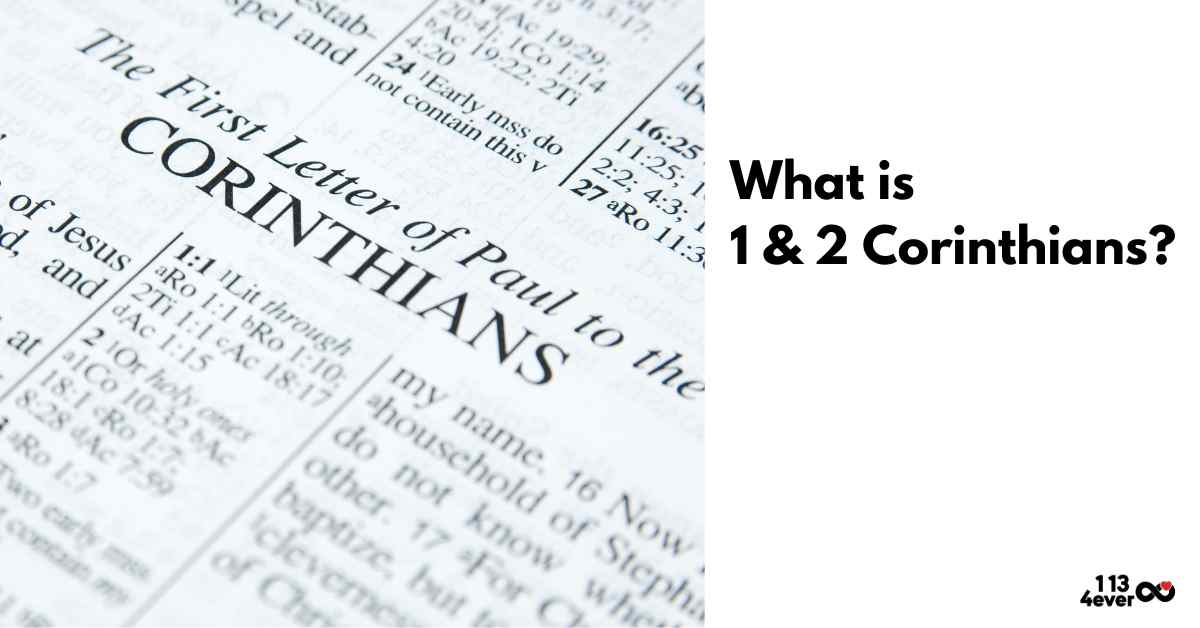2 Letters
Two inspired canonical letters written by the apostle Paul to the Christians in Greece during the first century C.E. The letters stand in seventh and eighth places, respectively, in most English versions of the Christian Greek Scriptures. Paul identifies himself as the writer of both letters, addressing First Corinthians to “the congregation of God that is in Corinth,” and Second Corinthians to “the congregation of God that is in Corinth, together with all the holy ones who are in all of Achaia.
That Paul did indeed write first and Second Corinthians cannot be seriously questioned. In addition to the apostle’s own testimony, the authenticity and general acceptance of both letters are attested by external testimony. The two letters are ascribed to Paul and quoted by writers of the first to the third centuries. Also, what is known as “The Canon of Athanasius” (367 C.E.) lists, among “fourteen letters of Paul the apostle,” “two to the Corinthians.” This list is the first example of the catalog of books of the Christian Greek Scriptures as we have them today, preceding by 30 years the list published by the Council, or Synod, of Carthage, Africa, in 397 C.E.
Paul arrived in Corinth about 50 C.E. Initially he gave a talk in the synagogue every Sabbath “and would persuade Jews and Greeks.” However, after encountering opposition and abusive speech among those in the synagogue, the apostle turned his attention to “people of the nations,” the Gentiles in Corinth. Paul’s meetings with them were transferred to a house next door to the synagogue, and many “began to believe and be baptized.” Told by the Lord in a vision, “I have many people in this city,” the apostle remained there for a year and six months “teaching among them the word of God.” Because Paul had been instrumental in establishing a Christian congregation in Corinth, he could say to them: “Though you may have ten thousand tutors in Christ, you certainly do not have many fathers; for in Christ Jesus I have become your father through the good news.”
Immoral times in Corinth
Gross immorality was practiced in Corinth, and in time it even affected the Christian congregation in that city. Paul found it necessary to rebuke the congregation in a letter because among them arose a case of “such fornication as is not even among the nations,” for a certain man had taken his father’s wife. Using an illustration they could appreciate, he also encouraged them to faithfulness. He knew that they were acquainted with the athletic contests at the Isthmian Games held near Corinth. So he wrote: “Do you not know that the runners in a race all run, but only one receives the prize? Run in such a way that you may attain it. Moreover, every man taking part in a contest exercises self-control in all things. Now they, of course, do it that they may get a corruptible crown, but we an incorruptible one.”
When was 1 Corinthians written and who was he writing to?
During his third missionary tour Paul spent some time in Ephesus. Probably during the last year of his stay there, the apostle received disturbing news about conditions in the Corinthian congregation. Paul had been told “by those of the house of Chloe” that dissensions existed among the Corinthians. Stephanas, Fortunatus, and Achaicus had also come from Corinth and may have provided some information about the situation there. Also, Paul had received a letter of inquiry from the Christian congregation in Corinth. Hence, out of deep regard for the spiritual welfare of his fellow believers there, Paul wrote this first letter to the Christian congregation in Corinth, about 55 C.E. That Ephesus was the place of composition is made certain by Paul’s words recorded at 1 Corinthians 16:8: “But I am remaining in Ephesus until the festival of Pentecost.”
In the introduction to First Corinthians Paul mentions an associate, Sosthenes, who may have penned the letter as dictated by Paul. This is likely, since toward its conclusion we read: “Here is my greeting, Paul’s, in my own hand.”
When was 2 Corinthians written and who was he writing to?
Paul wrote his second letter to the Corinthians probably during the late summer or early autumn of 55 C.E. The apostle had written the first letter in Ephesus, where he probably stayed as planned, until Pentecost of that year, or longer. Paul then departed for Troas, where he was disappointed in not meeting Titus, who had been sent to Corinth to assist in the collection for the holy ones in Judea. So Paul proceeded to Macedonia, where Titus joined him with a report on the Corinthians’ reaction to his first letter. (2Co 2:12, 13; 7:5-7) Paul then wrote the second letter to them from Macedonia, evidently dispatching it by the hand of Titus. Then, after a few months, his efforts to visit Corinth materialized. So Paul actually visited the Corinthians twice. After his first visit, at which time he established the congregation, he made a plan for a second visit, which failed. But “the third time” that he planned or got “ready” he was successful, for he was able to see them again in about 56 C.E. (2Co 1:15;12:14; 13:1) During this second visit in Corinth he wrote his letter to the Romans.


